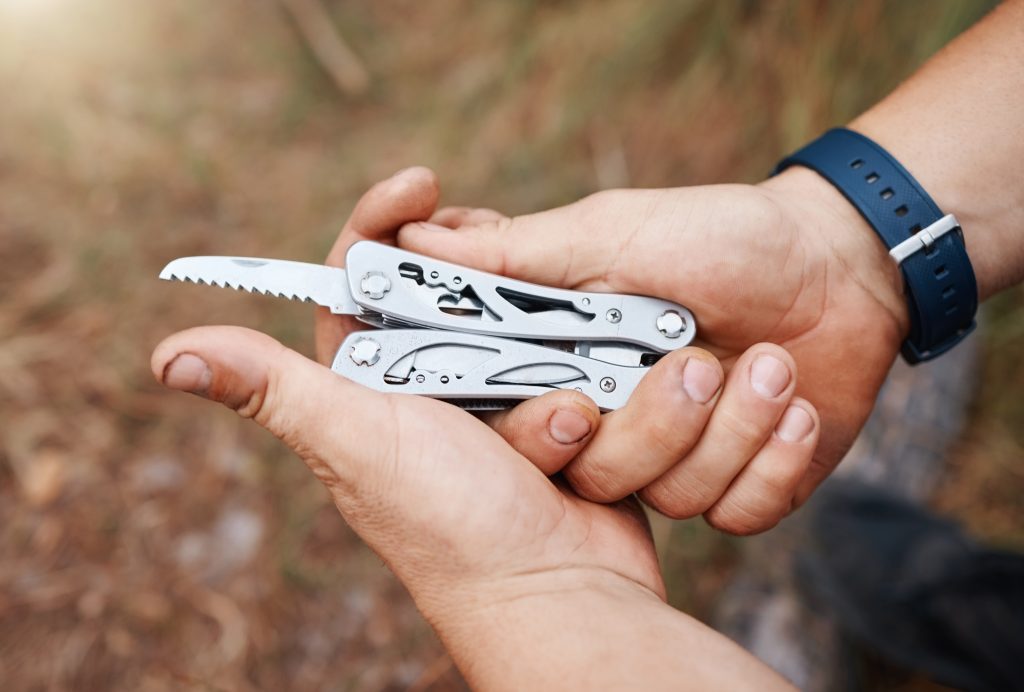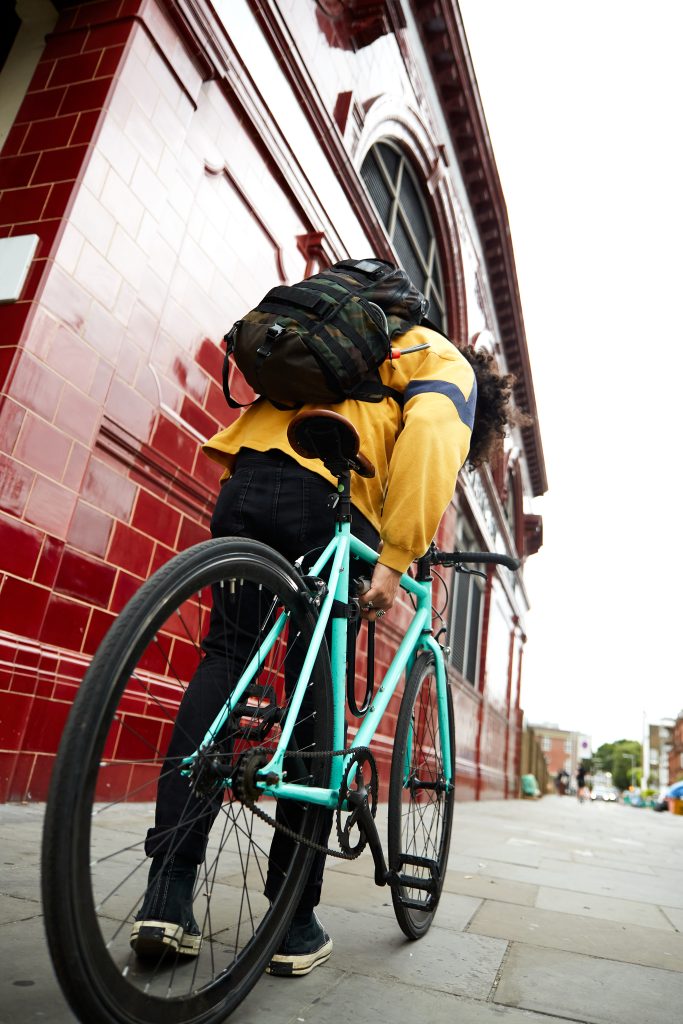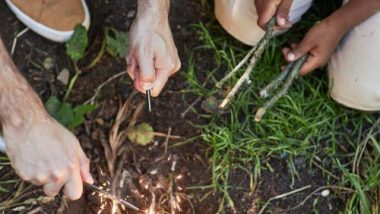Table of Contents
- Shelter and water
- Foraging and Fix-It Skills
- Situational Awareness
- Self-Defense and Personal Protection
- Waste Management
- Essential Gear
- Mental and Emotional Health
- Conclusion
Are you prepared for the worst-case scenario in an urban survival environment? Natural disasters, civil unrest, and terrorist attacks can strike at any time, leaving you vulnerable and in need of survival skills. Urban survival is a crucial set of skills, tactics, and gear necessary to endure an extended disaster in a city.
It’s not just about surviving; it’s about thriving amidst the chaos. In this article, we will provide practical tips, skills, and gear to equip you with everything you need to survive in an urban environment. From finding shelter and collecting clean water to developing fix-it skills and self-defense techniques, we will cover essential survival strategies that could mean the difference between life or death.
Whether you’re a seasoned prepper or new to the concept of urban survivalism, this guide has something for everyone who wants to be prepared for any emergency situation.
Shelter and water
You’ll want to make sure you have emergency supplies in place before a disaster strikes.
One of the most important things you’ll need is a way to collect and purify water. You can do this by having a water filtration system or by boiling water for at least one minute. Make sure to also store enough bottled water for at least three days.
In addition to having access to clean water, you’ll need to find shelter in your home or apartment during an emergency situation. This means identifying safe areas within your home that are away from windows and doors. You should also consider investing in emergency blankets or sleeping bags, as well as warm clothing and sturdy shoes.
It’s also important to know where nearby water sources are located if you need them. You can use a sill cock key to access spigots outside of buildings for additional sources of clean water. Additionally, be aware of any bodies of water that may be near your location, but only drink from them after they have been properly purified.

Overall, being prepared with these basic necessities will greatly increase your chances of survival during an urban crisis.
By having access to clean drinking water and finding shelter within your home or apartment, you’ll be able to weather out the storm until help arrives or until it’s safe enough to venture outside for additional resources.
Foraging and Fix-It Skills
Learning how to scavenge for food and fix things can be a fun and useful way to prepare for unexpected situations. In an urban environment, resources may be limited, so it’s important to know how to find what you need.
Here are some tips for urban foraging and DIY repairs:
- Know what’s edible: Urban foraging involves finding edibles in the city such as fruits, nuts, and herbs. However, not everything is safe to eat. Learn about the plants in your area that are safe to consume and avoid those that are toxic or contaminated.
- Use your senses: When scavenging for food or supplies, use all of your senses – sight, smell, touch – to detect potential resources. Be aware of your surroundings and look for signs of life such as birds or insects which can indicate nearby food sources.
- Learn basic repair skills: Knowing how to fix things can save you money and help you survive in a crisis situation where professional help may not be available. Start by learning simple repairs like fixing a leaky faucet or replacing a light bulb.
In addition to these tips, there are many resources available online and in books on urban foraging and DIY repairs techniques that can help you further develop these skills.
Remember that while scavenging techniques can be useful in survival situations, it’s important not to harm others’ property or take anything without permission. Always ask before taking something from someone else’s property.
By learning urban foraging and DIY repair skills, you’ll become more self-sufficient and better equipped to handle unexpected situations in an urban environment where resources may be scarce or hard to come by.
Situational Awareness
When navigating through a city, it’s crucial to be aware of your surroundings and potential threats so you can stay safe. Situational awareness is the ability to observe and understand what’s happening around you and how it may affect your safety. Improving situational awareness can help you avoid dangerous situations and react appropriately when necessary.
To improve your situational awareness, start by paying attention to your environment. Take note of any unusual or suspicious activity, such as people loitering in an area or someone following you. Look for potential escape routes or hiding places in case of an emergency. Avoid distractions such as using your phone while walking, which can make you an easy target for criminals.
Situational awareness techniques include observing body language and facial expressions to determine if someone appears hostile or threatening. Learn how to read the signs that someone may be preparing to attack you, such as clenching their fists or taking a defensive stance. Trust your instincts and don’t ignore feelings of unease or danger.
Situational awareness training can help develop these skills further. Consider taking self-defense classes that teach situational awareness along with physical techniques. Joining a neighborhood watch program can also provide valuable information about local crime trends and ways to stay safe in your community.
Being aware of your surroundings is crucial for urban survival. By improving your situational awareness through observation, avoiding distractions, learning techniques like reading body language, and seeking out training opportunities, you’ll be better equipped to navigate a city safely during times of crisis.
Self-Defense and Personal Protection
Improving your ability to defend yourself and your loved ones can provide a sense of empowerment and confidence in any situation. Learning self-defense techniques is an essential skill for urban survival. You never know when you might encounter a dangerous situation, so it’s important to be prepared.
Consider taking self-defense classes or practicing at home with friends or family members.
Personal protection courses are another great way to improve your skills. These courses teach you how to protect yourself in a variety of situations, including home invasions, muggings, and carjackings. They also cover topics like situational awareness and how to avoid becoming a target.
If you’re serious about urban survival, consider obtaining a license to carry a weapon as well. Carrying a weapon is not for everyone, but it can be an effective tool for personal protection. However, it’s important to remember that owning a firearm comes with responsibilities and risks. Make sure you receive proper training on firearms safety before carrying one, and always follow local laws regarding gun ownership.
Self-defense techniques, personal protection courses, and carrying a weapon are all ways to improve your ability to defend yourself in an urban survival situation. It’s up to you to decide which methods work best for you based on your individual circumstances and level of comfort with each option.
Remember that preparation is key when it comes to urban survival – take the time now to learn these skills and stay safe in any situation that may arise.
Waste Management
Proper management of waste can play a crucial role in preventing the spread of diseases during a crisis, making it vital to dispose of garbage and waste safely.
In an urban survival situation, you may not have access to traditional disposal methods, such as curbside pickup or a landfill. Therefore, you must learn about alternative waste disposal techniques that are safe and effective.
One option is composting in urban areas. Composting allows you to turn food scraps and other organic materials into nutrient-rich soil that can be used for gardening or farming. To compost in an urban area, you’ll need a container with holes for ventilation, brown and green materials (such as leaves and vegetable scraps), and water. Remember to avoid adding meat or dairy products to your compost pile.
Another important aspect of waste management during an urban survival situation is managing hazardous waste. This includes items such as batteries, cleaning chemicals, and medical supplies. Hazardous waste should never be disposed of with regular garbage as it can contaminate the environment and harm humans and animals alike. Instead, research local hazardous waste collection centers where these items can be safely disposed of.
Proper waste management is essential for maintaining hygiene and preventing the spread of disease during an urban survival situation. Composting provides a safe way to dispose of food scraps while also creating valuable soil for future use. Managing hazardous waste requires special attention to prevent contamination of the environment. By taking steps to manage your waste properly, you can improve your chances of surviving a crisis in an urban environment while also protecting yourself from potential health hazards associated with unmanaged garbage.
Essential Gear
To ensure you’re prepared for any situation, it’s crucial to have essential gear that can help you navigate and survive in a crisis. In an urban environment, having the right tools can make all the difference.
Here are some essential items to consider adding to your survival kit:
- Water filtration system: Clean drinking water is critical for survival, and in an urban environment, clean water may be hard to come by. A portable water filtration system can help remove impurities from questionable sources of water.
- GPS navigation: In a disaster scenario, roads may be blocked or destroyed, making it difficult to navigate through the city. A durable GPS watch with a long-lasting battery can help you find alternate routes and stay on course.
- Fire starting kits: Starting a fire is crucial for cooking food and staying warm in cold weather conditions. Waterproof fire-starting kits are ideal for urban environments where dry kindling may be scarce.
- Survival paracord: Paracord has many uses in survival situations such as building shelter or securing gear. It’s lightweight and easy to carry but also strong enough to support heavy loads.

Having these essential items on hand can make a significant impact on your ability to survive in an urban environment during a crisis scenario. However, it’s important also to remember that gear alone won’t necessarily save your life; it’s necessary also to have the skills necessary to utilize them effectively.
Incorporating these items into your survival kit is just one step towards being prepared for any situation that may arise while navigating through an urban area during a disaster scenario. Remember always; preparation is key when it comes down to surviving any type of emergency or crisis situation that could occur at any time unexpectedly!
Mental and Emotional Health
Maintaining your mental and emotional health is crucial during a crisis scenario, so make sure you take breaks, connect with loved ones, and practice self-care. Coping strategies can help you deal with the stress of an urban survival situation.
One useful strategy is to focus on what you can control. In a crisis, there are often many things that are out of your control, but there are also things you can do to improve your situation. By focusing on these things and taking action, you may feel more empowered and less helpless.
Stress management techniques can also be helpful in maintaining good mental health during a crisis situation. Deep breathing exercises or meditation can help calm the mind and reduce anxiety. Exercise is another effective way to manage stress and boost mood. Even if you don’t have access to traditional exercise equipment or space, simple activities like stretching or walking around your shelter area can be beneficial.
Mental resilience is another important aspect of urban survival. This means being able to adapt to unexpected circumstances and bounce back from setbacks. Developing mental resilience takes time and practice, but it’s worth it in the long run. One way to build resilience is by challenging yourself regularly in small ways – for example, trying new foods or activities that push you out of your comfort zone.
Don’t underestimate the power of social support in maintaining good mental health during a crisis scenario. Connecting with loved ones – whether they’re physically present or not – can provide a sense of comfort and reassurance during difficult times. Make sure to check in with family members regularly if possible, and consider joining online communities where you can share experiences with others who are going through similar situations.
Overall, maintaining good mental and emotional health should be a top priority during an urban survival scenario. Coping strategies like focusing on what you can control, stress management techniques like deep breathing exercises or physical activity such as stretching or walking around your shelter area which will reduce anxiety levels, and mental resilience are all important in helping you stay strong and adaptable during difficult times. Additionally, social support is crucial for maintaining a sense of comfort and reassurance. Remember to take breaks, connect with loved ones, and practice self-care as much as possible.

Conclusion
Congratulations, you’ve reached the end of our article on urban survival tips, skills, and gear.
We hope that this information has been helpful in preparing you for any potential emergency situation that may arise in an urban environment.
Remember that finding shelter and collecting clean water are essential to your survival. If possible, try to develop foraging and fix-it skills as well as situational awareness to better understand your surroundings.
Additionally, it’s important to know how to defend yourself and protect yourself from harm while also properly managing waste.
Carrying essential gear such as a first aid kit, multi-tool, flashlight, and communication device can make all the difference in an emergency situation.
Lastly, don’t forget about your mental and emotional health during times of stress or crisis. Stay calm, stay focused, and stay prepared – by following these tips and developing necessary skills, you can ensure your safety no matter what life throws at you.


